Notebooks
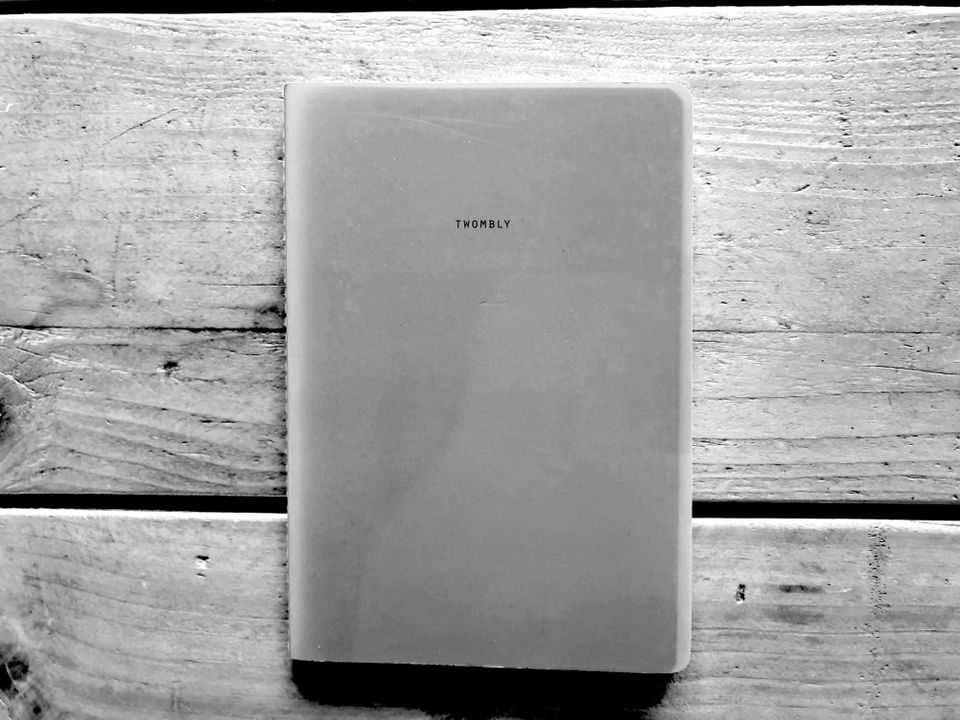
I'm leaving my job. In seven weeks, I'll resign my post as Director of the European Journalism Centre after four and a half years. On Monday, I began that clichéd rite of passage: the Clearing of the Desk. Among the paperclips and reports, read and unread, were some notebooks.
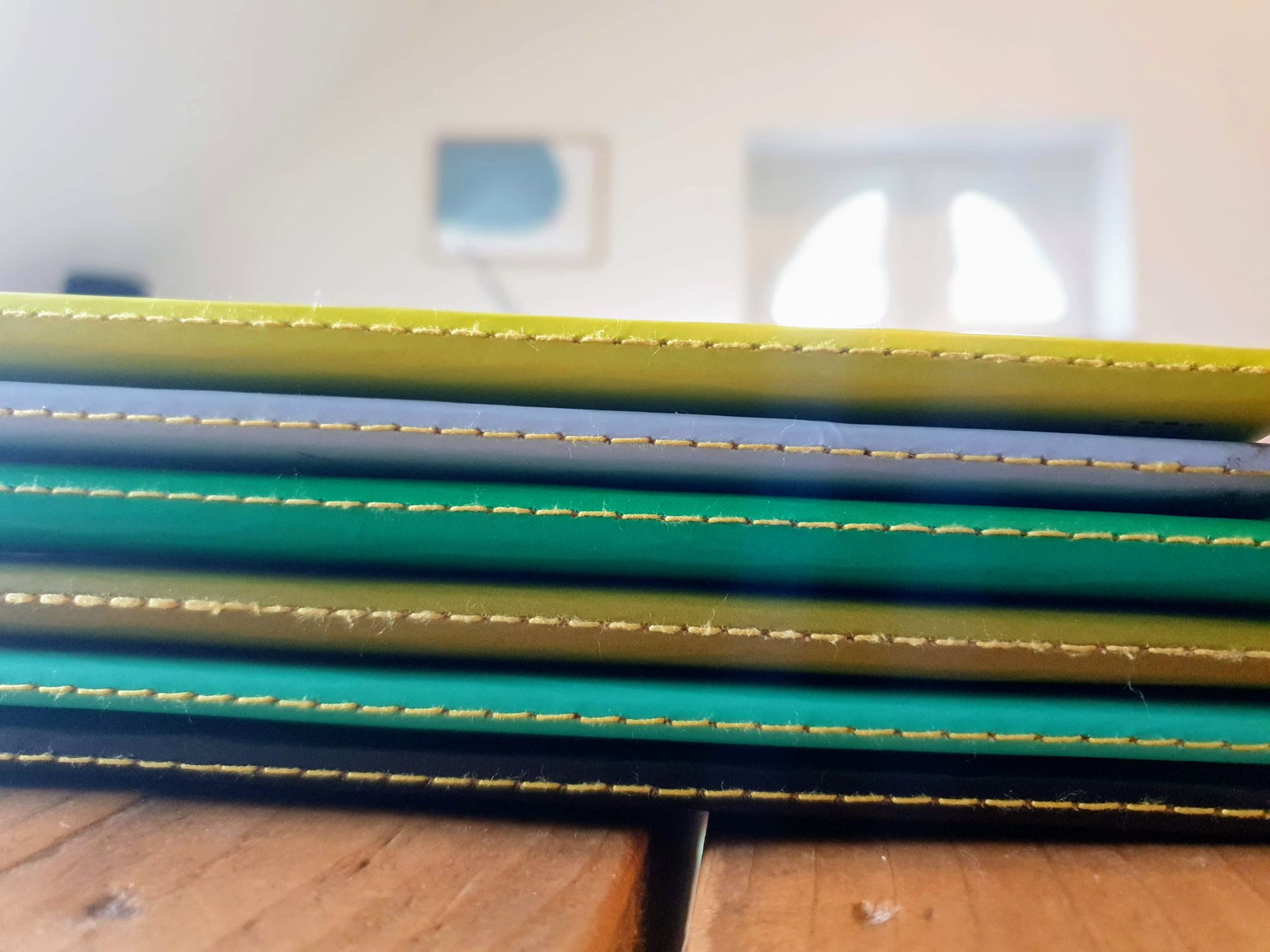
These particular notebooks come from the School of Thought notebook series. Covers with bold colours, nice paper, squares and lines and dots. They are a treat to write in.
Inside are pages of scrawled To Do lists and strategy sketches. They contain many unattributed ideas, the sources of which have mostly been forgotten. But that is to my advantage.
W.G. Sebald once encouraged his students to "steal as much as you can. No one will ever notice. You should keep a notebook of tidbits, but don’t write down the attributions, and then after a couple of years you can come back to the notebook and treat the stuff as your own without guilt."
The notebooks are from two sets. The first is dedicated to the Minimalists: Twombly, Martin, Stella.
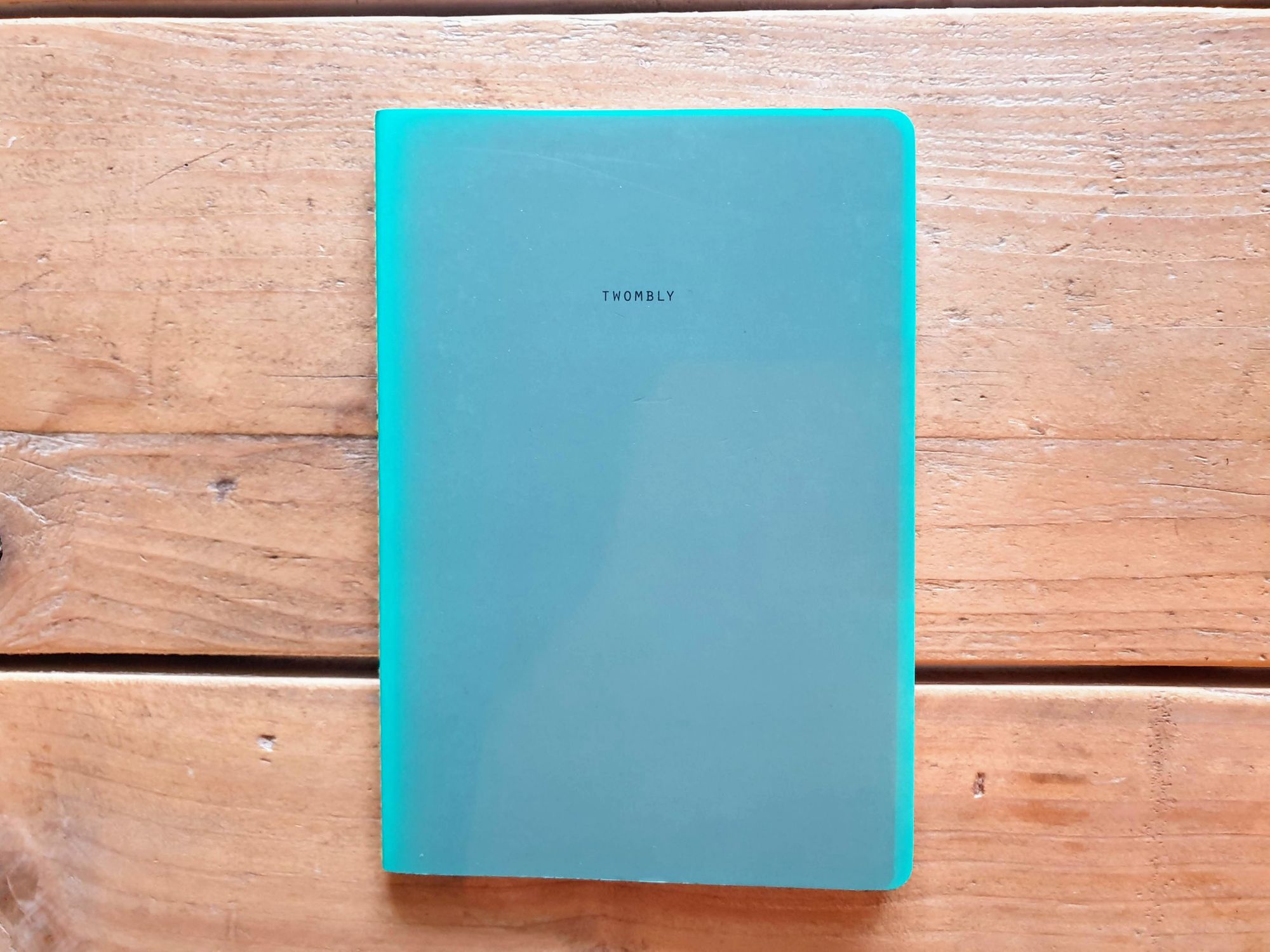
"Emerging initially in the US in the 1960s, minimalism is a strategic rejection of excess. (It’s not that the artists were too lazy to do more.) Rather than simply show us the chaos, clutter and frenetic demands of modern existence, minimalism offers us a cure. Simplify, reduce, concentrate on one thing at a time."
On the pages of Twombly I found my original 100 day plan for the European Journalism Centre. This, I suppose, was my attempt to simplify, reduce and concentrate during my initial months in the new role. I barely recognise it.
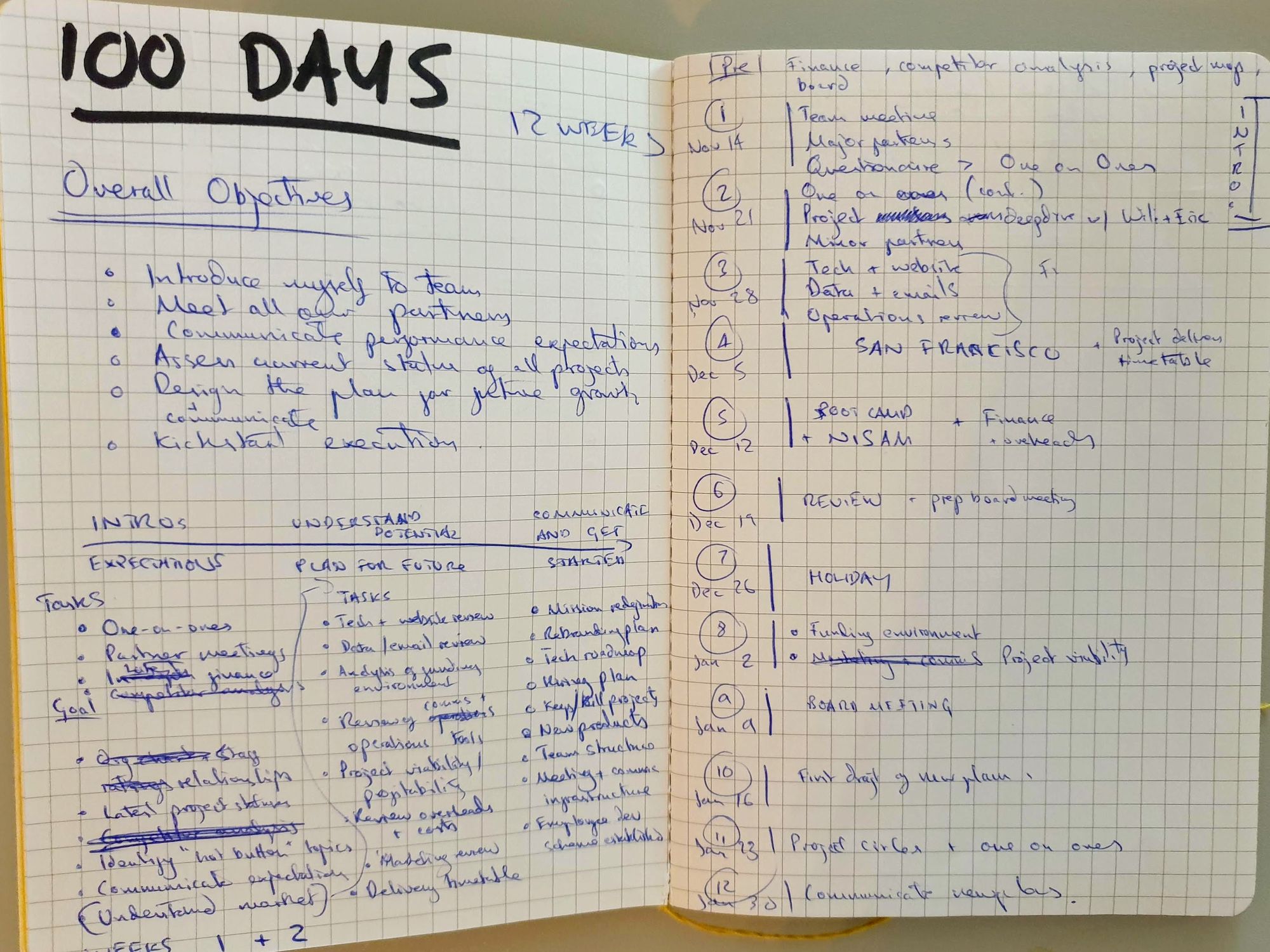
The second set is dedicated to the Existentialists: Kierkegaard, Heidegger, Sartre.
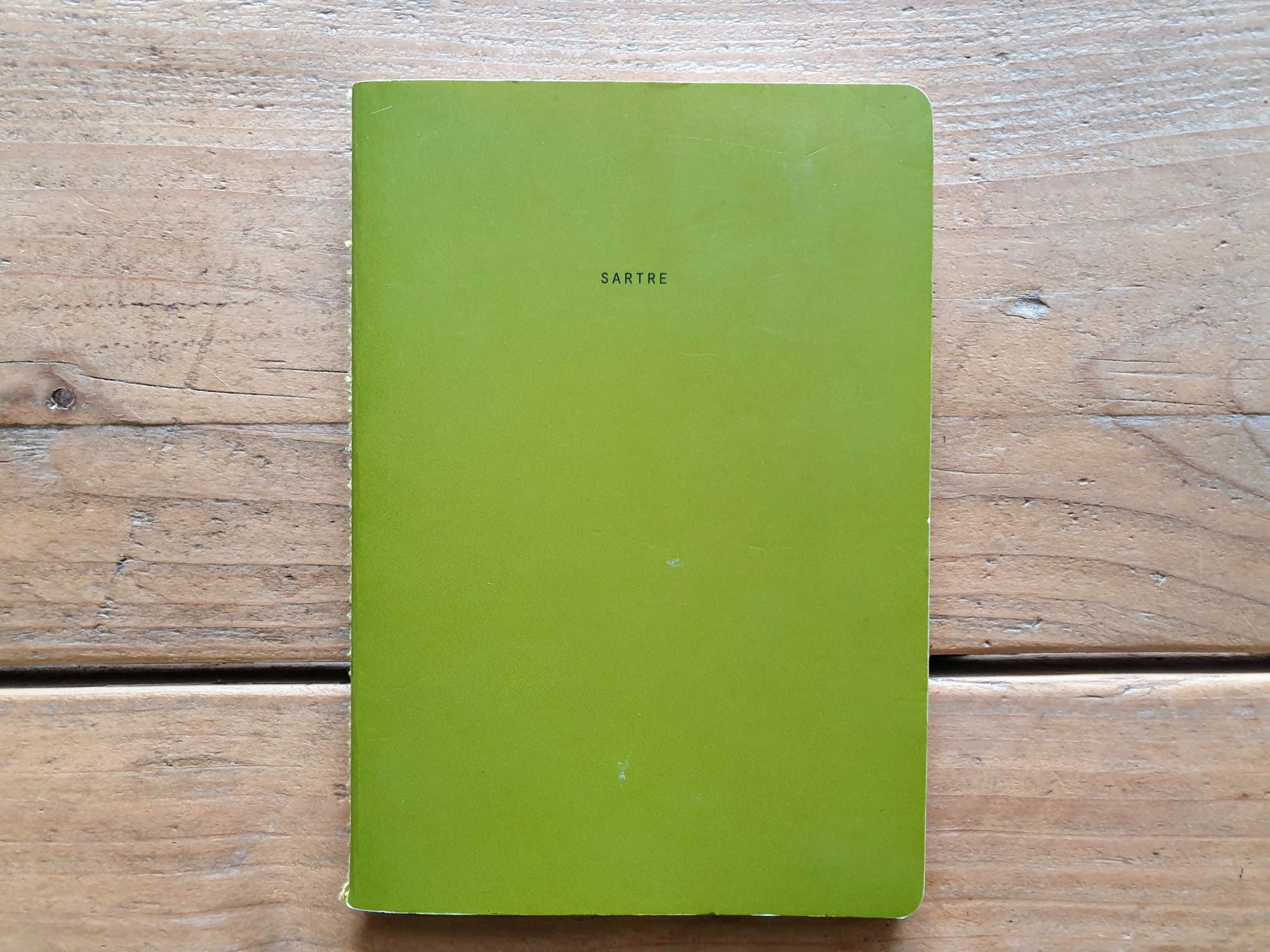
"The Existentialists' starting point is that traditional societies used to tell you how to live but that nowadays, we have to make it all up for ourselves. This is both exhilarating and a terrible burden. They are especially concerned with how we can cope with the pressure to make the right choice in our careers and in our romantic lives, and help us to be compassionate observers of ourselves."
Opening the notebook titled Sartre, I found my 2018 attempts to use a bullet-journal and adopt the Level 10 Life methodology. That was the beginning of compassionate observation for me. Perhaps this thinking led me to make this change, to leave this role in search of new challenges and a different life? For certain, I cannot say.
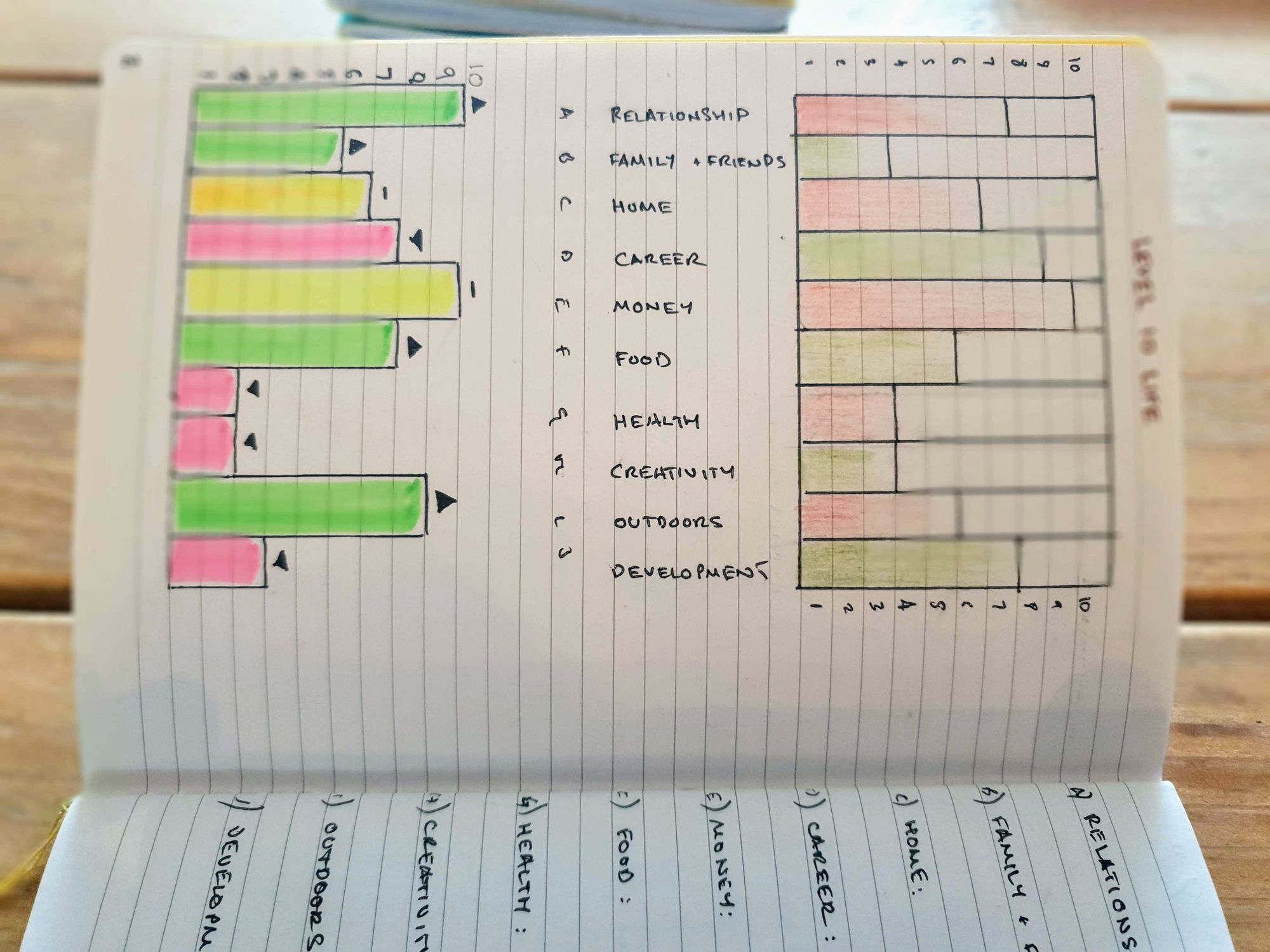
An improvement on the art of living
Looking back on these pages of abandoned, unmoored notes I realise that notebooks are for notes I want to forget. For purposes of recall or remembering, digital notes are far superior. With them, I create permanent records, outside of my head. At any time I can recall them, combine them with other notes, reuse them in fresh contexts. My digital notes are focused and single purpose. I write them ready for publication. I write them ready to be fused and blended and merged into larger works. They are adaptable, designed for the unknown. They last forever.
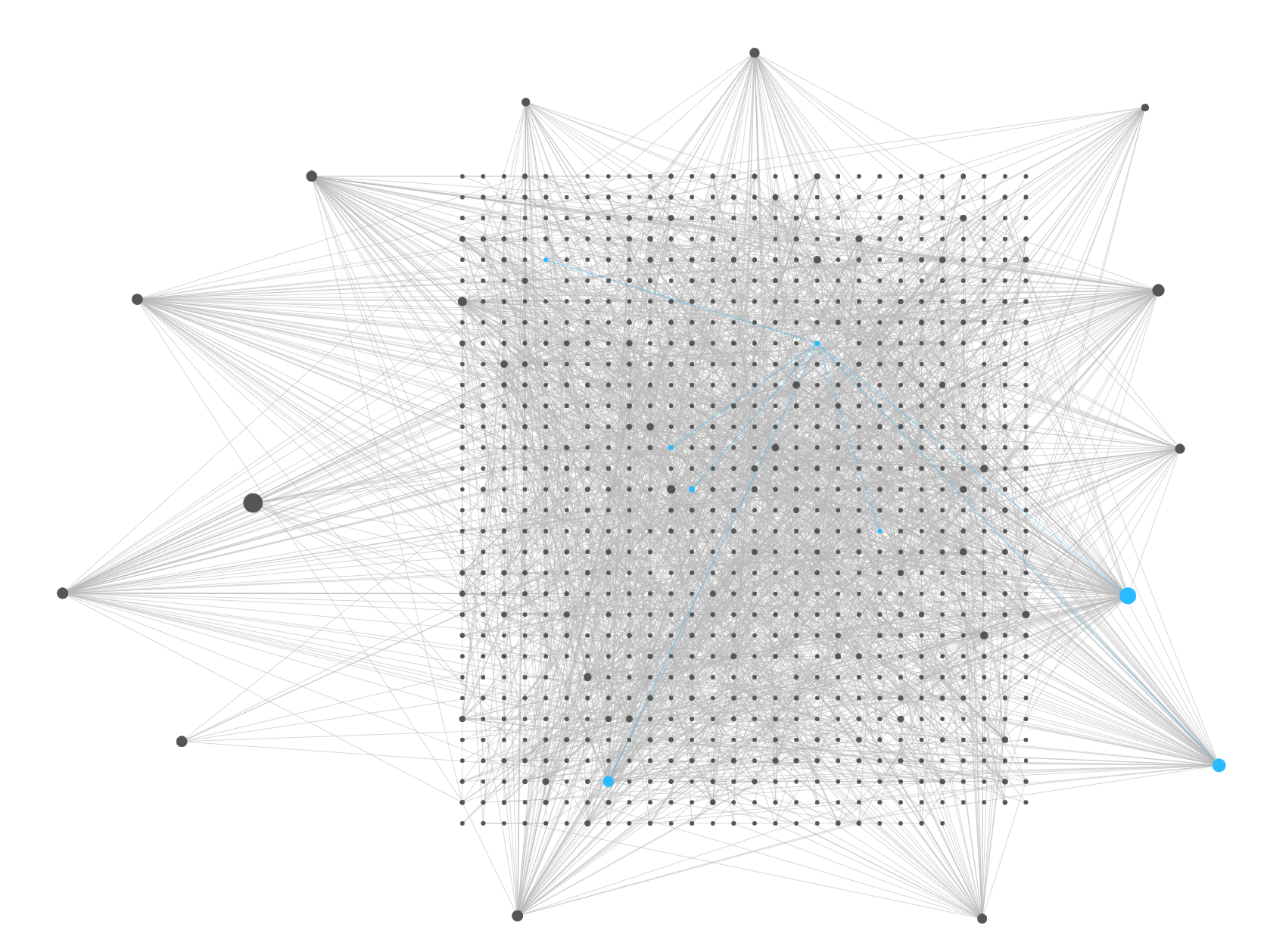
In this brave new world, there is no table of contents. Each note is self-contained, with original sources attributed, and linked to a network of other thoughts. They can be enhanced and transported and connected to other notes later. This is the foundation of my 'Second Brain' approach.
Paper and ink have not been retired though. Just redeployed. My physical note-taking endures. A futureproofed digital system cannot capture everything. It is a weapon of recall and remembrance, but not reminiscence.
Notebooks mark passages of time in a distinct way; they hold origin stories and reflection. They are records of a different kind. The lack of form allows our memory to restructure them, to infer cause and effect. They have a calming influence, suggesting that everything is not merely connected, but that everything is preceded. Thoughts give rise to other thoughts. As Jørgen Leth once said, "a notebook is an improvement on the art of living."
This is my new notebook, a gift marking the beginning of a new phase in my life. The pages are empty. They are ready for a new 100 day plan. Ready for a compassionate, existentialist observation (whatever that is). Ready for stolen ideas, the sources of which I may, or may not, forget.
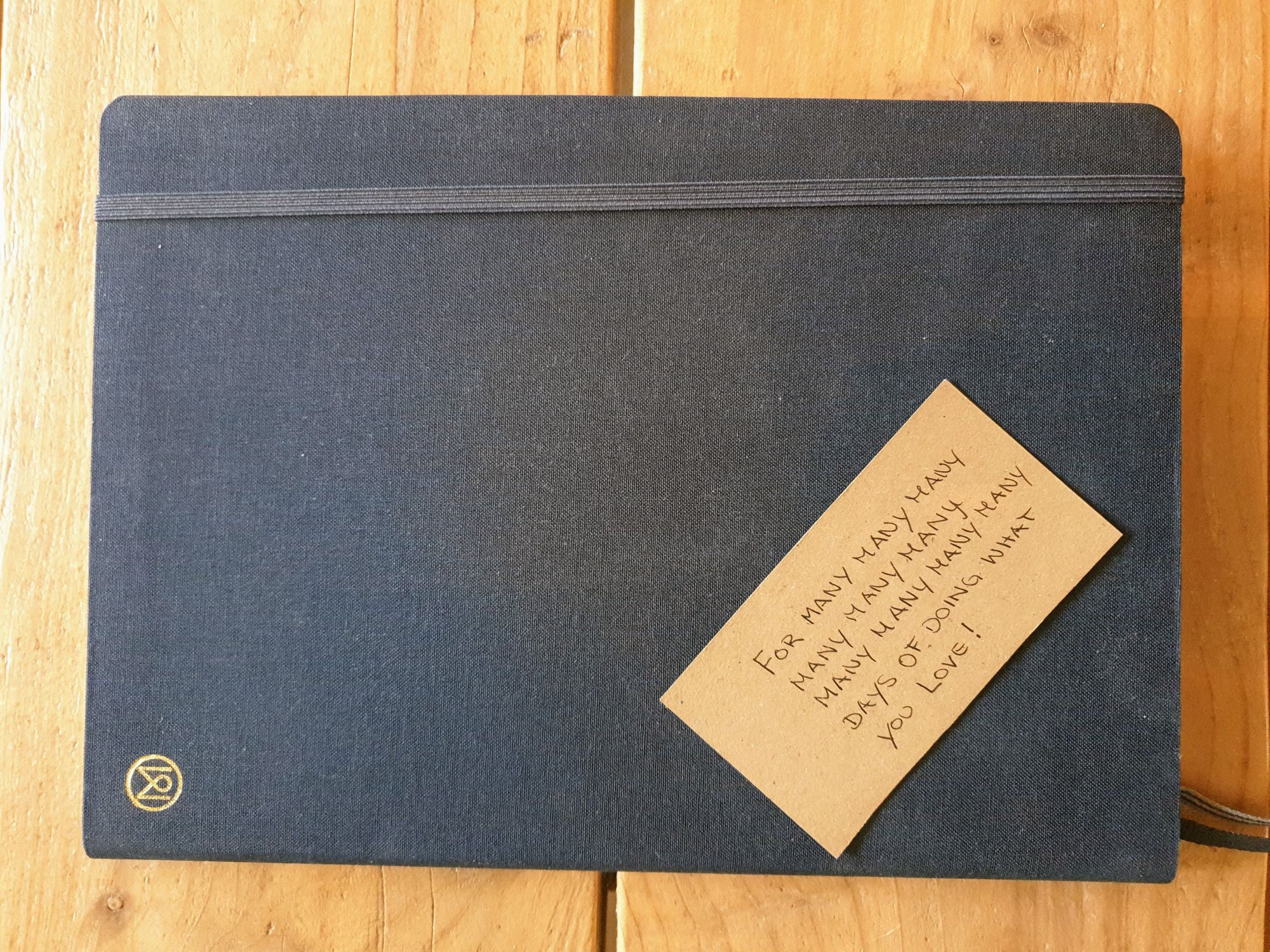
Thanks for reading
The quotes about Minimalism and Existentialism in this piece are from The School of Life website. The W.G. Sebald quote is from The Collected ‘Maxims’ of W.G. Sebald, which I have read one hundred times. I have no idea where the Jørgen Leth quote is from. Or, indeed, if he ever said it.
You can receive these articles by email by signing up here. Read more about the Second Brain over at Tiago Forte's site.
Thanks to Julia Hildebrand for the new notebook.
